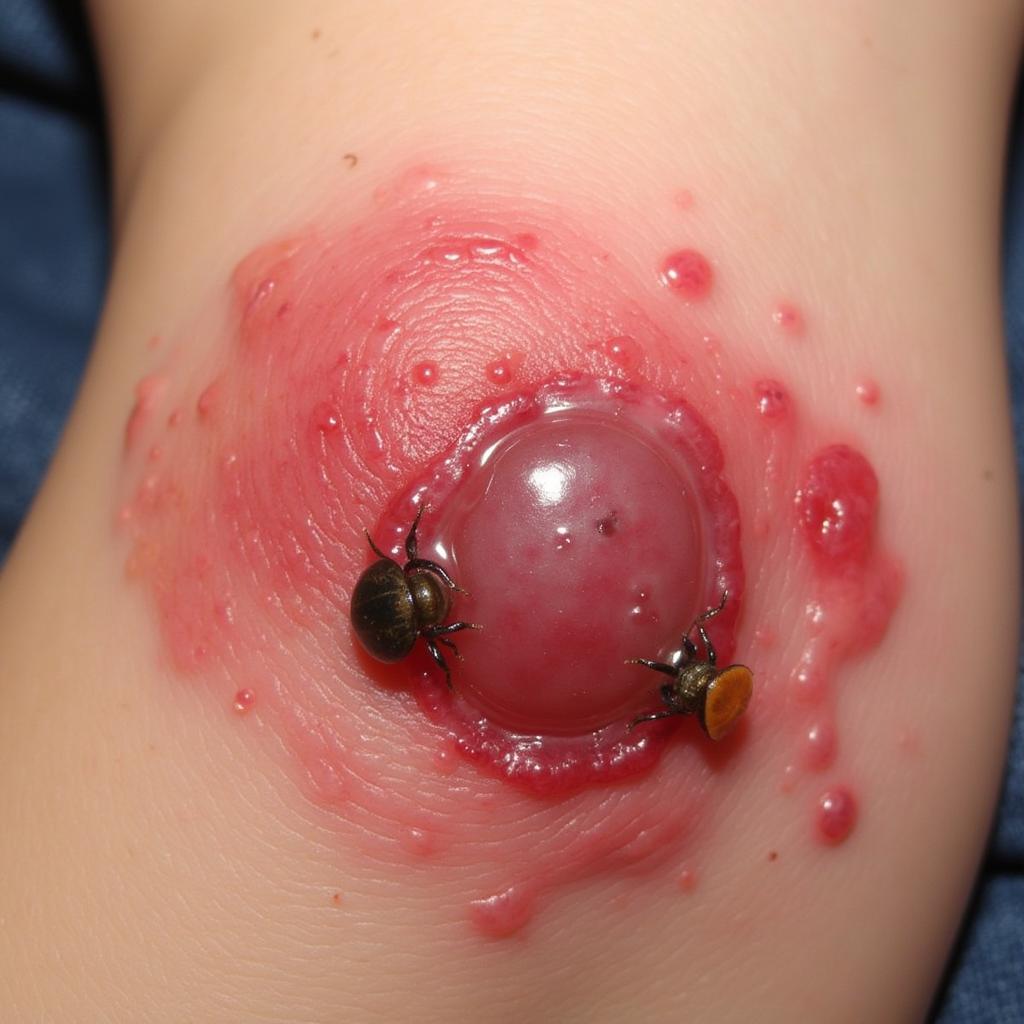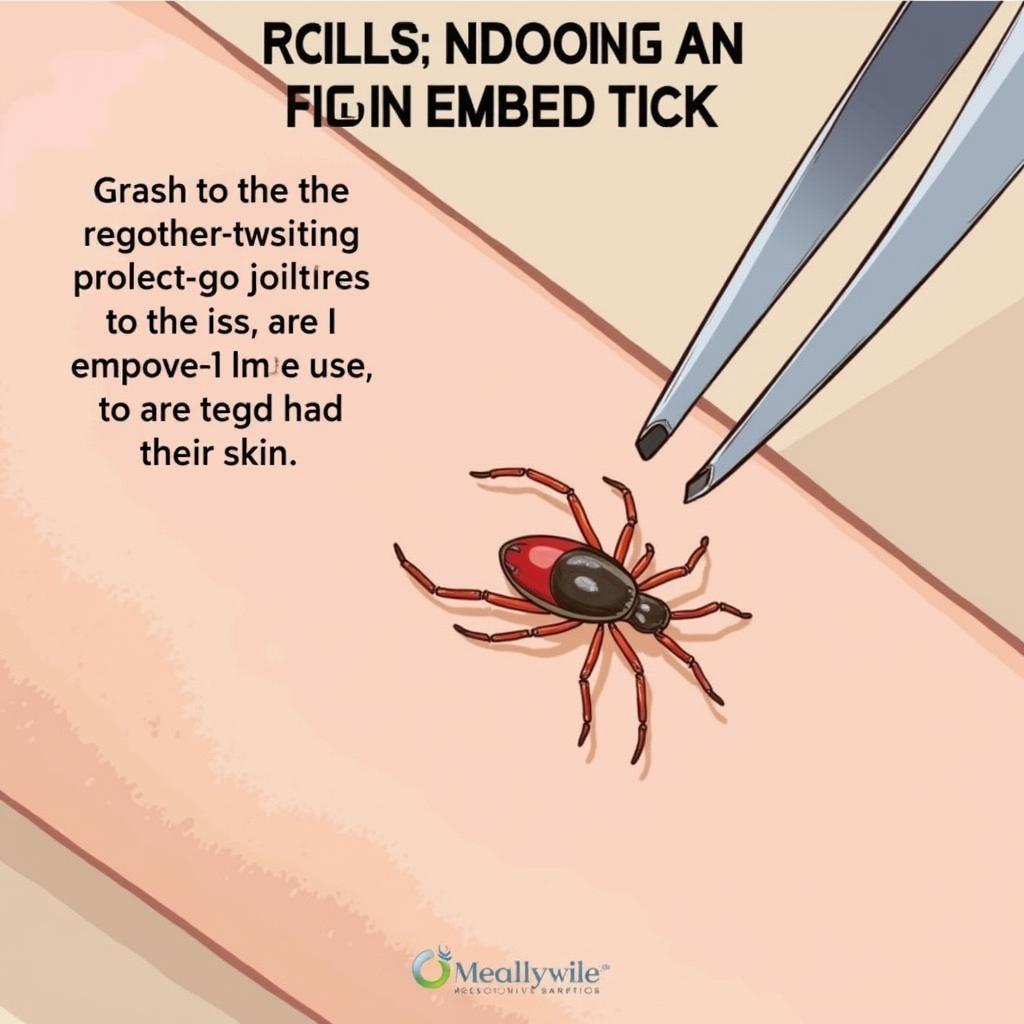You’ve been bitten by a bug – it’s itchy, it’s annoying, but is it dangerous? Most bug bites are harmless and can be treated at home with over-the-counter remedies. However, there are certain situations when a bug bite warrants a trip to the hospital. Knowing the signs and symptoms can help you determine the severity of the bite and make informed decisions about your health.
Recognizing When a Bug Bite Needs Medical Attention
While most bug bites result in mild discomfort, some reactions can indicate a more serious condition. Here are some signs that you should seek medical attention immediately:
- Severe allergic reaction: If you experience symptoms such as difficulty breathing, swelling of the face, tongue, or throat, hives, dizziness, or a rapid heartbeat, seek emergency medical care. This could be anaphylaxis, a life-threatening allergic reaction.
- Signs of infection: Look out for increasing pain, redness, swelling, warmth around the bite area, red streaks extending from the bite, pus discharge, or swollen lymph nodes. These could indicate a skin infection requiring medical treatment.
- Flu-like symptoms after a bite: If you develop fever, chills, body aches, headaches, or fatigue after a bug bite, it’s important to see a doctor. These symptoms could be a sign of a vector-borne illness like Lyme disease, West Nile virus, or Zika virus.
- Multiple bites: A large number of bites, especially from ticks or mosquitoes, can increase the risk of disease transmission. Seek medical advice if you have multiple bites or are unsure about the source.
- Worsening symptoms: If your symptoms don’t improve after a few days or seem to be getting worse despite home care, consult a healthcare professional to rule out any complications.
 severe bug bite reaction requiring medical care
severe bug bite reaction requiring medical care
Common Bug Bites and When to Seek Help
Let’s delve into specific types of bug bites and the situations that might require professional medical care:
Mosquito Bites
- Generally harmless: Mosquito bites typically cause itchy red bumps.
- When to seek help: If you develop flu-like symptoms after traveling to an area with mosquito-borne illnesses, consult a doctor.
Tick Bites
- Risk of Lyme disease: Ticks can transmit Lyme disease, which can have serious long-term health consequences.
- When to seek help: See a doctor immediately if you find an embedded tick or develop a bull’s-eye rash, fever, headache, or muscle aches after a tick bite.
 safely removing an embedded tick with tweezers
safely removing an embedded tick with tweezers
Spider Bites
- Most are harmless: Most spider bites cause minor, localized reactions.
- When to seek help: Seek immediate medical attention if you suspect a bite from a black widow (causes muscle pain and cramping) or brown recluse spider (causes a painful sore with a dark center).
Bee, Wasp, and Hornet Stings
- Painful but usually harmless: These stings usually cause pain, swelling, and redness at the sting site.
- When to seek help: Seek emergency care for severe allergic reactions or multiple stings.
Ant Bites
- Generally mild reactions: Ant bites typically cause minor irritation.
- When to seek help: Fire ant bites can cause painful, pus-filled blisters. Seek medical care if you have multiple fire ant bites or signs of infection.
Tips for Preventing Bug Bites
Prevention is always better than cure! Here are some practical tips to minimize your risk of bug bites:
- Use insect repellent: Apply insect repellent containing DEET, picaridin, or lemon eucalyptus oil to exposed skin when spending time outdoors.
- Wear protective clothing: Cover up with long sleeves, pants, and socks when in wooded or grassy areas.
- Avoid peak bug hours: Mosquitoes are most active at dawn and dusk.
- Remove standing water: Eliminate sources of standing water around your home, as these can serve as breeding grounds for mosquitoes.
Expert Insight
” It’s always best to err on the side of caution when it comes to bug bites,” advises Dr. Emily Carter, a board-certified dermatologist. “If you’re ever in doubt about the severity of a bite or are experiencing unusual symptoms, don’t hesitate to seek medical advice. Early intervention is key in managing potential complications.”
Conclusion
While most bug bites are a nuisance rather than a serious health threat, being aware of the signs and symptoms of a more severe reaction is crucial. By taking preventative measures and seeking prompt medical attention when necessary, you can effectively manage bug bites and protect your well-being. Remember, if you’re unsure about a bug bite, it’s always best to consult a healthcare professional for personalized guidance.
FAQs
Q: How long does it take for a bug bite to go away?
A: Most bug bites disappear within a few days to a week.
Q: Can I use over-the-counter creams for bug bites?
A: Yes, hydrocortisone cream or calamine lotion can help relieve itching and inflammation.
Q: When should I be concerned about a tick bite?
A: Seek immediate medical attention if you find an embedded tick or develop a rash, fever, headache, or muscle aches after a tick bite.
Q: What are the symptoms of a severe allergic reaction to a bug bite?
A: Symptoms include difficulty breathing, swelling of the face, tongue, or throat, hives, dizziness, and a rapid heartbeat.
Q: Can bug bites transmit diseases?
A: Yes, certain bugs, such as mosquitoes and ticks, can transmit diseases like Lyme disease, West Nile virus, and Zika virus.
For any concerns or further assistance regarding bug bites and your health, please contact our 24/7 helpline at 02437655121 or email us at [email protected]. You can also visit us at our San Jose Hospital location: Số 298 Đ. Cầu Diễn, Minh Khai, Bắc Từ Liêm, Hà Nội, Việt Nam. Our dedicated team is always ready to provide comprehensive care and support.